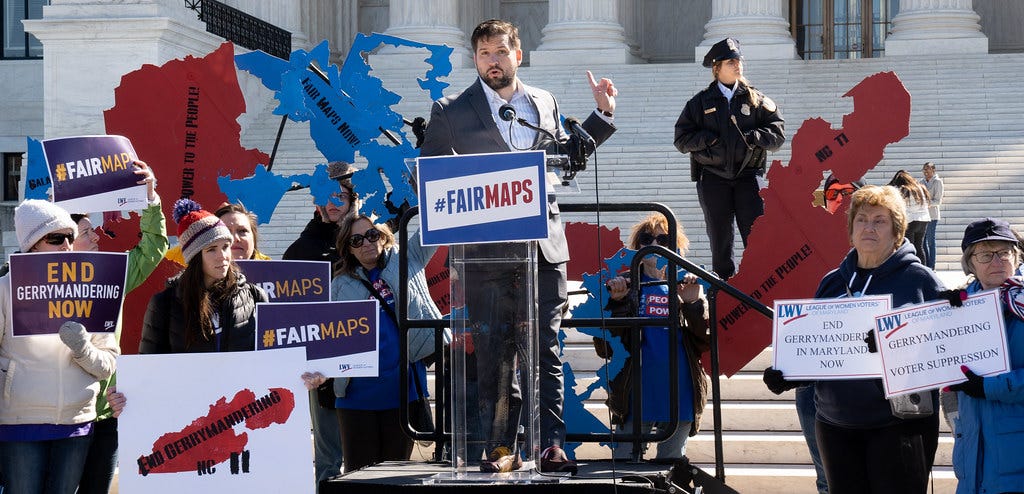Voting rights under threat in Chicago
Illinois voters shouldn't think themselves immune to the ways democracy has been eroded nationwide.
When we Chicagoans think about the struggle to protect voting rights in 2022, our minds often go to our kindred in southern states like Georgia, Texas, and Florida. Our national news environment (and for some us, our on-the-ground connections) have kept us painfully aware of some of the egregious attempts within those borders to suppress the votes of poor and minority voters. We send prayers and aid, and some have even traveled and organized to protect that most fundamental right within a democracy, the right to vote. While I laud and have taken up my own share of that work, I think that it is important that we not forget about the voting rights issues that we have in our own backyard.
Let’s begin with something that should be nothing more than a short-term shock to the voting system in the city. After a drawn-out fight over electoral maps, the city of Chicago will have about 40 percent fewer polling locations in next week’s election. And a majority of Chicago voters will cast their ballots somewhere different than the place they voted in previous elections.
While these precinct changes are anticipated following each decennial census and the reapportionment that follows, the change normally takes place before the primary elections. This year, however, the reduction in polling places will mean that people will be voting in somewhere other than where they voted in the June primary election. There have been a lot of questions as to whether enough has been done to inform voters about these changes and to avoid chaos and confusion on Election Day.
But, some of the voting rights issues are less apparent and more long term. Perhaps the most important are the lack of electoral competitiveness and political maps drawn in such a way as to be resistant to community organizing.
First, let’s examine the issue of electoral competition. Most democracy advocates support the idea of competition as a net positive for voter power. Researchers at Harvard University show that competition matters in elections. The evidence suggests that uncontested and lightly contested elections tend to skew policy in favor of powerful special-interest groups at the expense of everyone else.
Chicago faces a very bleak outlook from that vantage point. Of the seven U.S. congresspersons to be elected next week to represent Chicago in Washington, only one will be the result of a competitive race. Five are not competitive and one is completely unopposed. Of 17 state senate races that impact a considerable portion of the city, only one is considered to be competitive on Tuesday and 11 are completely uncontested. That bodes well for the special interests, not so much for the rest of us.
The lack of competition in elections stems from another voting rights issue we’re facing in Chicago: the severe partisan gerrymandering of the state’s political maps. Every ten years, following the census, electoral district boundaries are redrawn with the goal of reapportioning the vote so that districts are relatively equal in voting population. In Illinois, the remapping process has been completely controlled by the Democratic Party, which has drawn maps to maximize Democrat-controlled districts. It is important to note that many more states in the nation are similarly controlled by their local Republicans and those states see maps gerrymandered in favor of that party.
But one of the unintended consequences of these maps is that many neighborhoods and municipalities are split between multiple representative districts. That makes it much more difficult to build effective neighborhood associations that hold elected officials accountable, since there are often too many “stakeholders” to demand true accountability. This problem impacts minority voters the most. That’s why the Chicago Lawyers Committee for Civil Rights and the state NAACP joined in a lawsuit against the maps that have been passed into law in the most recent redistricting.
With Election Day upon us, it is good and right that we continue to support our fellow Americans, our brothers and sisters in Christ who are facing clear and present threats to their fundamental voting rights (Shout out to all those who will be serving as poll chaplains in neighboring states with with Faiths United to Save Democracy). But we must resist the urge to hold our city in mind as a model for voting rights. From ranked choice voting, to redistricting reform, to finance reform, we have a long way to go. Let’s keep pressing toward that higher standard.




